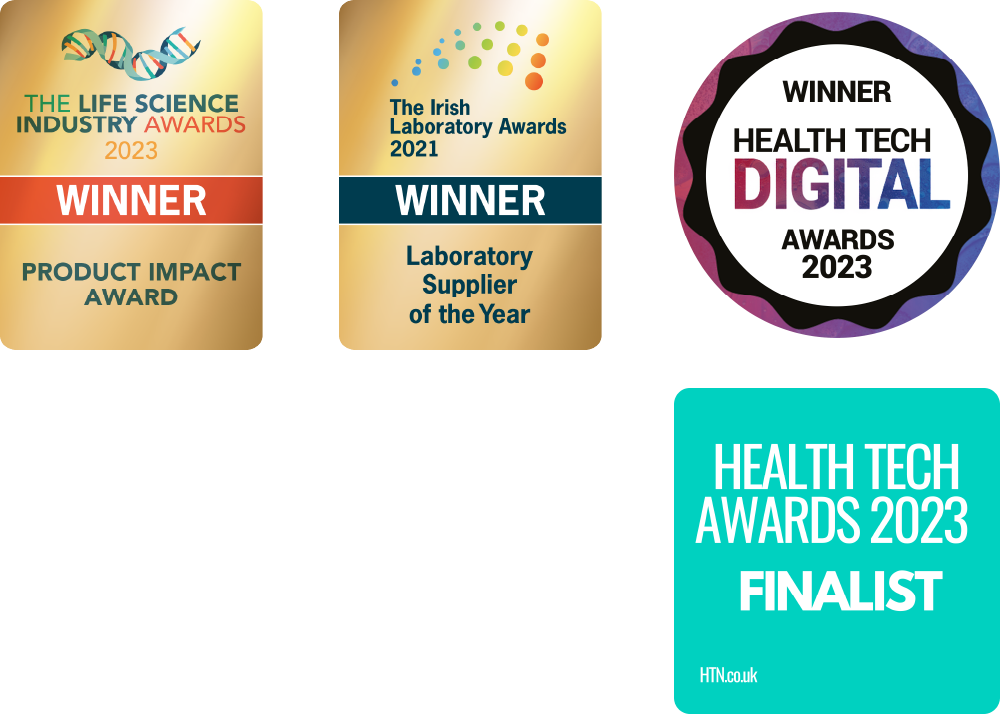Envisioning the Future of Healthcare Technology in 2024 and Beyond
The future of healthcare technology is here! As we settle into 2024, rapid digital transformation has ushered in a new era of technological advancement and reliance on digital health solutions.
The integration of diverse healthcare systems is crucial to overcoming communication challenges and ensuring streamlined patient care. Discover our predictions for what the future of digital healthcare looks like, from the revolutionary impact of genomic medicine to the pivotal role of technologies like SNOMED CT, cybersecurity measures, and innovative solutions for improved patient outcomes.
1. The importance of Integrated Solutions for Streamlined Patient Care
Over the past few years, rapid digital transformation in the medical field has meant accelerating advancement and adoption of new healthcare technology as well as a greater reliance on telehealth and virtual wards. While there are clear benefits to this transformation for both medical practitioners and patients, there are also challenges. When multiple healthcare applications and systems exist, interoperability becomes vital. Clinicians have to deal with accessing data from a wide variety of systems and applications, such as patient administration systems, radiology systems, dictation systems and laboratory information systems to name a few. This is where an is integrated solution like DMF’s GeneCIS Clinical Portal comes in.
In healthcare technology, a truly integrated solution seamlessly connects disparate healthcare systems, applications, and devices, facilitating the exchange of data between them. The primary goal is to create a seamless and interoperable environment where healthcare technology tools work together efficiently to improve patient care, enhance operational workflows, and support data-driven decision-making.
Without a fully integrated solution, data is siloed and fragmented and it is difficult to get a holistic view of the patient and their needs. Integrated solutions are key to ensuring smooth data exchange to support the delivery of enhanced patient care.
Integrated solutions that leverage HL7 standards such as Fast Healthcare Interoperability Resources (FHIR) enable seamless integration and interoperability with other healthcare systems and applications. FHIR is as a standardised framework for exchanging, integrating, and managing electronic health information designed to enhance interoperability, making it easier for different healthcare systems and applications to communicate and share data seamlessly.
2. Genomic Medicine
In 2024, genomic medicine is poised to revolutionise healthcare technology. Genomic medicine involves utilising genetic information to tailor healthcare solutions to individual patients. It goes beyond a one-size-fits-all approach, considering a person’s genetic makeup, their lifestyle, and the environmental factors to which they are exposed.
In practical terms, genomic medicine encompasses precision medicine, CRISPR technology, omics studies, genetic testing, and gene therapy. Precision medicine, as opposed to generic treatments, designs medical approaches based on an understanding of the patient’s individual genetic makeup. CRISPR technology revolutionises gene editing, holding promise for treating various diseases. Omics studies explore biological processes beyond genetics, including pharmacogenomics and proteomics. Genetic testing provides an understanding of a patient’s genetic makeup, contributing to personalised healthcare. Gene therapy, a ground-breaking approach, aims to treat the root cause of diseases by introducing healthy genetic material.
As genomic medicine advances, it brings about transformative changes in healthcare technology, prompting careful consideration of ethical implications. Key concerns revolve around areas such as gene editing, the accessibility of therapies, and the effects of direct-to-consumer genetic testing. This evolving landscape in genomic medicine signals a broader shift towards healthcare practices that are not only more personalised and effective but also adhere to ethical standards. It’s critical that the healthcare industry continues its commitment to navigating these ethical considerations to help realise a healthier future for both individuals and communities alike.
The HSE National Genetics and Genomics Strategy, initiated in 2022, lays the groundwork for a comprehensive approach to genetics and genomics in Ireland, spanning acute, primary, and community settings. This strategy addresses issues the country faces related to genomic medicine, including the policies needed to ensure it is ethical and inclusive, and signifies Ireland’s commitment to becoming a global leader in the field.

3. Healthcare Technology for Managing Bed Availability & Virtual Wards
The rise of virtual wards and remote patient monitoring is significantly shaping healthcare technology, facilitating seamless care coordination across diverse healthcare settings. Particularly essential during transitions of care from acute hospitals to home or community settings, virtual wards play a crucial role in ensuring continuity of care for patients no longer needing acute supervision before complete discharge.
The management of patients in virtual wards introduces unique challenges, requiring a balance between providing appropriate care and ensuring the timely transmission of information across healthcare settings. Clinical Summaries, a module of DMF’s GeneCIS Clinical Portal, is an invaluable tool, offering a comprehensive solution for virtual ward management. It provides healthcare providers with real-time access to essential patient information, including diagnoses, hospital discharge summaries, treatment information, and follow-up care requirements. This enables healthcare teams to plan and coordinate care proactively, which contributes to improved patient outcomes and experiences.
Furthermore, the ICU Bed Information System, developed by DMF Systems in collaboration with the National Office of Clinical Audit (NOCA), plays a pivotal role in managing bed availability. This system offers a real-time view of ICU bed occupancy across Ireland, allowing healthcare providers to quickly identify hospitals with available ICU beds. This supports the efficient management of critical ICU beds nationally to enable the sickest patients prompt access to the ICU care they urgently require.
As healthcare technology continues to evolve, the ICU Bed Information System and tools such as Clinical Summaries will be fundamental in advancing virtual ward pathways, supporting effective bed management, efficient care coordination, and ultimately, leading to better patient outcomes.
4. The Importance of Cybersecurity in Healthcare Technology
With the increase in reliance on healthcare technology solutions comes the increased significance of cybersecurity in the sector. Given the dependence on digital health information systems and electronic patient records, the scope of cyber threats widens, posing risks to patient privacy, data integrity, and the seamless delivery of critical services. Cybersecurity measures are not just vital for safeguarding sensitive health information but also for ensuring the uninterrupted operation of healthcare systems, guaranteeing seamless care delivery.
Ensuring cybersecurity around healthcare technology will be the law in the European Union. The NIS 2 Directive (Directive (EU) 2022/2555) is a significant move to boost cybersecurity in the EU, with a particular impact on healthcare. By October 17, 2024, member states must enforce measures to safeguard essential entities’ network and information systems. This includes health-related services. The directive emphasizes a comprehensive approach covering risk analysis, incident handling, and supply chain security. It holds management bodies accountable, urging cybersecurity training for them and employees. The directive ensures a resilient digital environment, critical for securing healthcare data and services.
The increase in cyberattacks on healthcare institutions emphasises the urgent need for robust security protocols, comprehensive employee training, and strategic investments in advanced security technologies. These measures are essential to effectively mitigate risks and preserve patient trust.
5. Artificial Intelligence & Machine Learning in the Future of Healthcare
Artificial Intelligence (AI) and Machine Learning (ML) are redefining healthcare technology, with their influence only set to grow in 2024 and beyond. Ireland, a global health tech hub, is a leader in this transformation.
AI and Machine Learning can enhance diagnostic precision through accurate analysis of medical images and personalised treatment plans based on individual patient data. They can also support the expediency of drug discovery, streamline operational processes and in some cases, predict patient outcomes. AI-powered devices have the propensity to raise the bar in remote patient monitoring for comprehensive home-based care. Natural Language Processing (NLP) fortifies efficient healthcare documentation, which can help save valuable time and resources.
Machine Learning is especially impactful in clinical research. Wearable technology allows real-time data collection, swiftly processed by ML. The U.S. Food and Drug Administration’s focus on integrating ML and AI into medical device software underscores their importance. ML, coupled with deep learning, accelerates drug discovery by predicting successful drug molecules. ML models can predict patient drug reactions, enabling proactive healthcare interventions. These diverse ML applications promise enhanced medical outcomes and patient care when utilised and adopted in a safe and carefully managed approach.
As AI and ML evolve and disseminate into various aspects of digital health, it would be remiss not to mention the critical need for such technologies to be coupled with human intervention to ensure the delivery of safe and effective patient care. There is little doubt that technology such as AI and ML can support healthcare providers in delivering enhanced patient care, it is truly only reliable and effective when coupled with human intervention. These technologies play an important role in the future of healthcare but there is a requirement for ongoing collaboration, cultural adaptation, and the integration of digital skills for their efficient and effective adoption across the healthcare system.
6. SNOMED CT Coding to Remove Ambiguity in Digital Health
In the future of healthcare technology, the significance of SNOMED CT (Systematised Nomenclature of Medicine Clinical Terms) cannot be overstated. It provides a comprehensive and multilingual healthcare terminology for precise communication in health records and documentation. The adoption of SNOMED CT addresses the challenge of ambiguity in digital health by ensuring standardised representation across various Electronic Health Record (EHR) systems and among healthcare professionals.
SNOMED CT achieves this through:
- Standardisation: SNOMED CT provides a universal language for diagnoses, clinical findings, and procedures, ensuring consistency in healthcare information.
- Interoperability: It enables seamless information exchange in digital health systems, crucial for effective patient care coordination.
- Enhanced Documentation: SNOMED CT minimises ambiguity, facilitating detailed and precise patient care documentation.
- Patient Outcomes: Specificity and comprehensiveness improve patient outcomes by supporting precise clinical decision-making.
- Multilingual Support: SNOMED CT’s translation feature ensures standardised terms’ global applicability in multilingual settings.
- Research Impact: It enhances data quality for research, supporting epidemiological studies, health trends monitoring, and policy-making.
SNOMED CT plays an indispensable role in the healthcare technology ecosystem, and its role will only become more vital. Standardisation is key to improving the efficiency and quality of healthcare delivery, patient safety, and overall outcomes.
7. Digital Technology that Supports Healthcare Providers to Improve Patient Outcomes
The ultimate goal of advancing healthcare technology is to empower healthcare providers to deliver the best possible patient outcomes. Solutions designed to help elevate patient care are truly the future of healthcare technology. DMF’s Inter-AHP, a fully integrated suite of information management modules designed for Health & Social Care Providers (HSCPs were formerly called Allied Health Professionals or ‘AHP’s) in healthcare settings, is a prime example. Collaboratively crafted with inputs from HSCPs and Hospital Management, Inter-AHP offers a seamless, integrated solution for information management across disciplines.
With its secure and configurable user access, Inter-AHP grants HSCPs precise control over data, ensuring a tailored approach for each discipline and department. Supporting various disciplines such as Physiotherapy, Occupational Therapy, Speech and Language Therapy, Nutrition and Dietetics and Social Work, it stands as a versatile electronic patient record solution for multi-disciplinary treatment and reporting.
At its core, Inter-AHP excels in streamlining patient, episode, and treatment workflows in adherence to established standards. By automating routine administrative tasks, it liberates HSCPs to dedicate more time to patient care, augmenting the quality of treatment. Inter-AHP’s intuitive interface guarantees swift training, amplifying productivity and user uptake.
The case management structure—Patient, Episode, and Visit—enables secure sharing of patient data, allowing HSCPs to efficiently manage records. Outside the clinical realm, it offers insights to hospital management on Allied Health utilisation and relevant outcomes. Integration with the Hospital Patient Master Index aligns Inter-AHP with broader hospital systems, ensuring a seamless experience in resource planning, scheduling, and patient care tracking.
In essence, Inter-AHP epitomises the digital revolution in healthcare, delivering secure, accessible, and user-friendly solutions. Its pivotal role enhances patient outcomes and ensures uninterrupted care, making it an indispensable asset for healthcare providers committed to delivering excellence in the digital era.

As healthcare technology continues its rapid evolution, the commitment to integrated solutions, ethical genomic practices, and advanced digital tools is key. From securing patient data through robust cybersecurity to cautiously embracing the potential of AI and ML, the journey towards enhanced patient care is a collective effort. The fusion of technology, ethical considerations, and innovative solutions, exemplified by platforms like GeneCIS Clinical Portal and Inter-AHP, paves the way for a future where healthcare is not only efficient and effective but also deeply patient-centric. In this digital era, the pursuit of excellence in healthcare remains a driving force for positive outcomes and an improved quality of life.
If you’d like to learn more about and of DMF’s healthcare technology solutions, get in touch today![/vc_column_text][/vc_column][/vc_row]








